Are you finding it a hassle to keep track of your prescription medication refills? You're not alone! Many people struggle with organizing their health needs, especially when it comes to timely refills. In this article, we'll explore a simple letter template you can use to request your medication refills effortlessly. Keep reading to discover how to streamline your refill process!
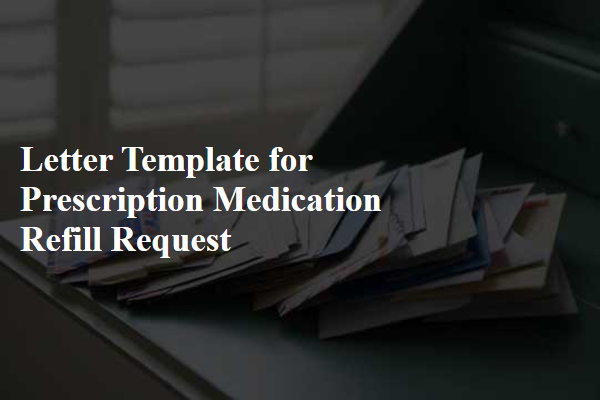
Patient Information
A prescription medication refill request requires specific patient information, including the patient's full name, date of birth (DOB), and contact number, ensuring effective communication. Essential details also include the name of the medication, dosage, and prescribing physician's name, along with the pharmacy's name and contact information. Accurate prescription records, including the previous fill date and prescription number, help streamline the refill process. Additional notes about allergies or current medications may enhance the safety and appropriateness of the request. This structured information facilitates a timely and efficient refill through pharmacies, improving patient care and adherence to treatment.
Prescription Details
Prescription medication refill requests involve essential details critical for proper pharmacy processing. Include medication name, such as Atorvastatin, and dosage information, typically 20 mg taken once daily. Specify the number of refills, often indicated as zero or a specific number, like three. Include patient details, such as full name, date of birth, and contact number. Pharmacy information is vital, including name (e.g., Walgreens), address, and phone number. Lastly, note the prescribing physician's name, such as Dr. Jane Smith, and their contact details for verification. Accuracy ensures timely refills and uninterrupted medication adherence for underlying health conditions like high cholesterol.
Prescribing Doctor's Contact
Prescription medication refills are essential for maintaining continuous treatment. The prescribing doctor, typically a licensed medical professional such as a physician or nurse practitioner, plays a crucial role in ensuring that patients receive the necessary medications on time. Contacting the prescribing doctor's office, located often within hospitals or specialized clinics, must be done efficiently, with clear communication regarding the medication name, dosage, and the specific refill needed. This process often involves pharmacy contacts, prescription numbers, and, in some cases, insurance details, ensuring the patient's uninterrupted access to vital treatments. Prompt attention to refill requests can prevent potential health risks associated with missing doses of important medications.
Pharmacy Information
Pharmacy information refers to essential details about a pharmacy that plays a crucial role in medication management and patient care. Key details include the pharmacy name, such as Walgreens or CVS, and its address, often including street number, city, and zip code for accurate identification. The phone number is vital for communication regarding prescription refills, inquiries, or consultations. Operating hours (typically Monday to Friday from 9 AM to 9 PM, and Saturday from 9 AM to 6 PM) provide patients with information on when to access services. Additionally, identification numbers, such as Pharmacy License Number or NPI (National Provider Identifier), ensure compliance and proper tracking of medication dispensing. Lastly, insurance acceptance details assist patients in understanding their coverage options for prescription medications.
Refill Reason/Request
Patients often require timely refills of prescription medications to maintain their health conditions effectively. Common medications, such as antihypertensives (like Lisinopril, prescribed for high blood pressure) or antidepressants (such as Sertraline, used to manage anxiety and depression), must be administered consistently. Insufficient supply can lead to exacerbation of symptoms or potential health crises. Healthcare providers often receive refill requests via electronic health records (EHR) systems, phone calls, or patient portals, emphasizing the need for clear communication regarding medication adherence and potential side effects. Providing important details, such as prescription numbers or dosages, can expedite the refill process, ensuring that patients can continue their treatment without interruption.
Letter Template For Prescription Medication Refill Request Samples
Letter template of prescription medication refill request for chronic condition management.
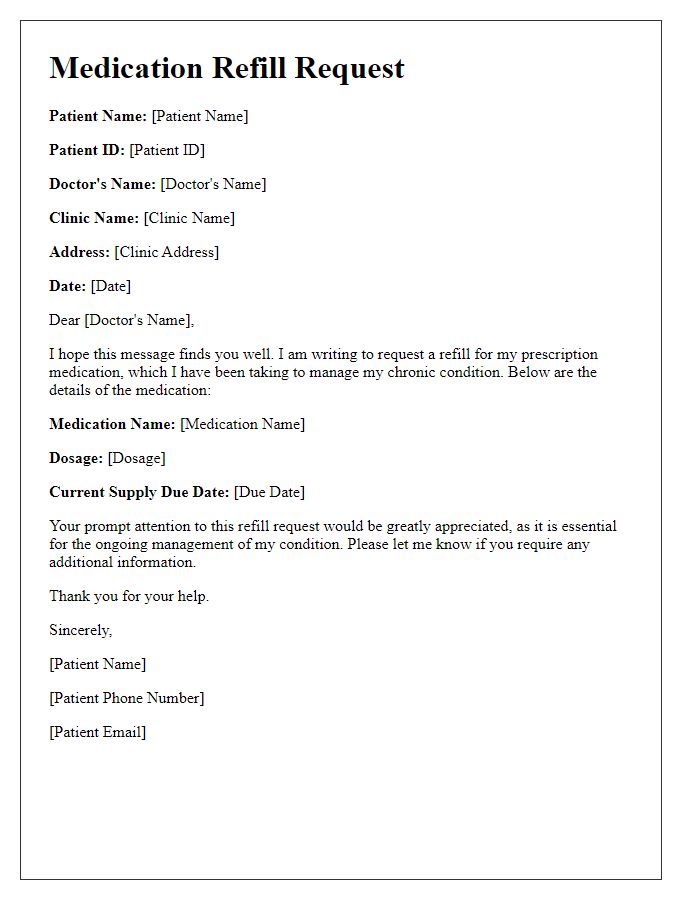
Letter template of prescription medication refill request for urgent medical needs.
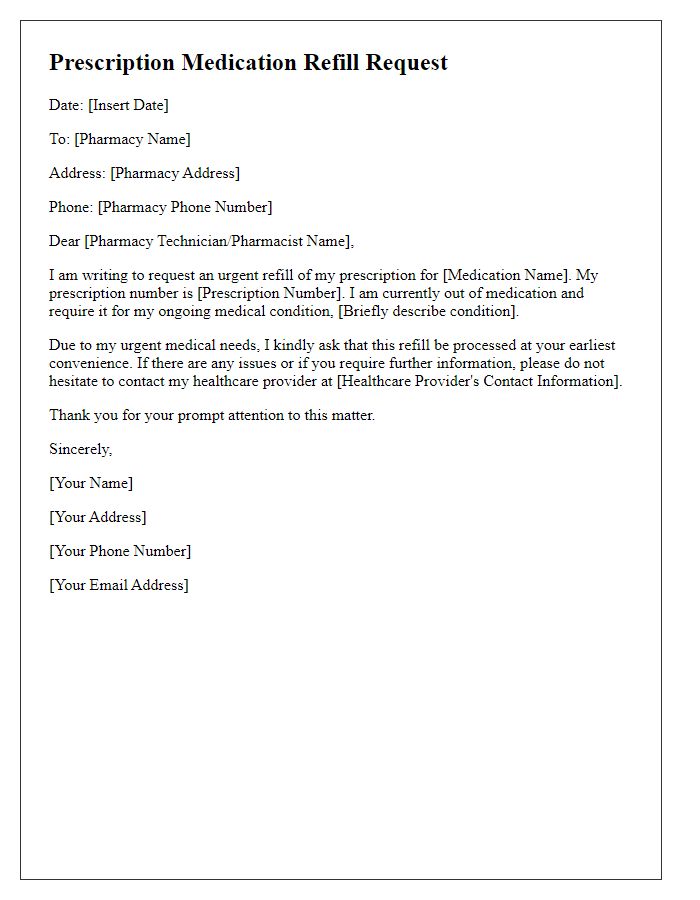
Letter template of prescription medication refill request for pediatric patients.
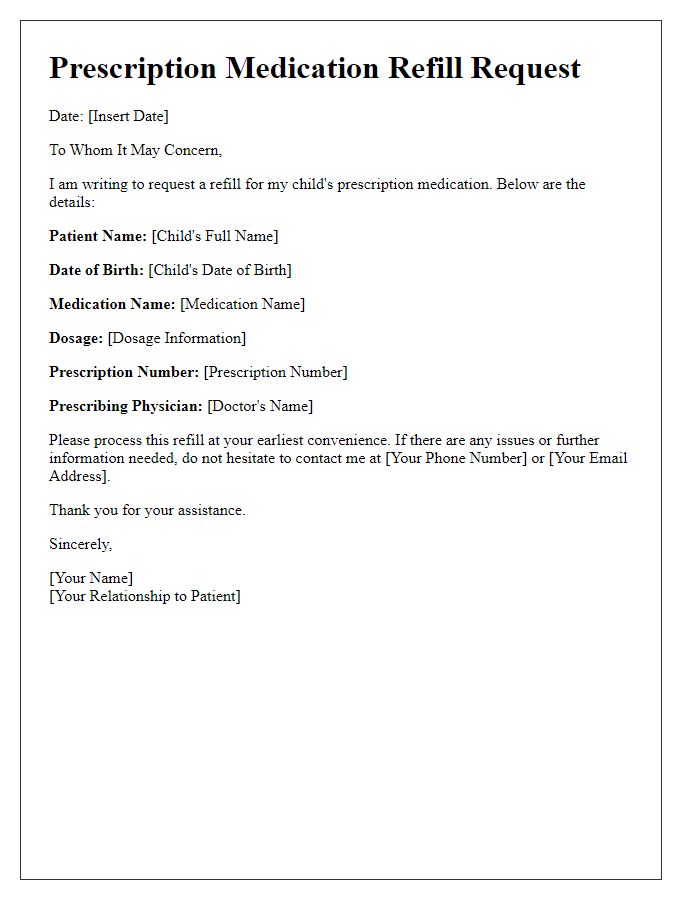
Letter template of prescription medication refill request for elderly patients.
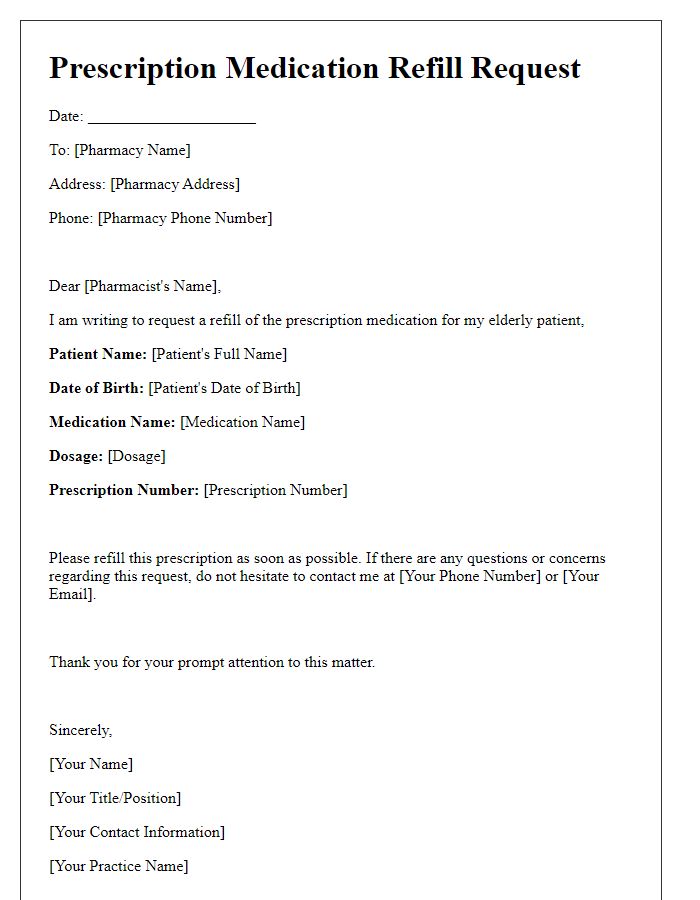
Letter template of prescription medication refill request for mental health treatment.
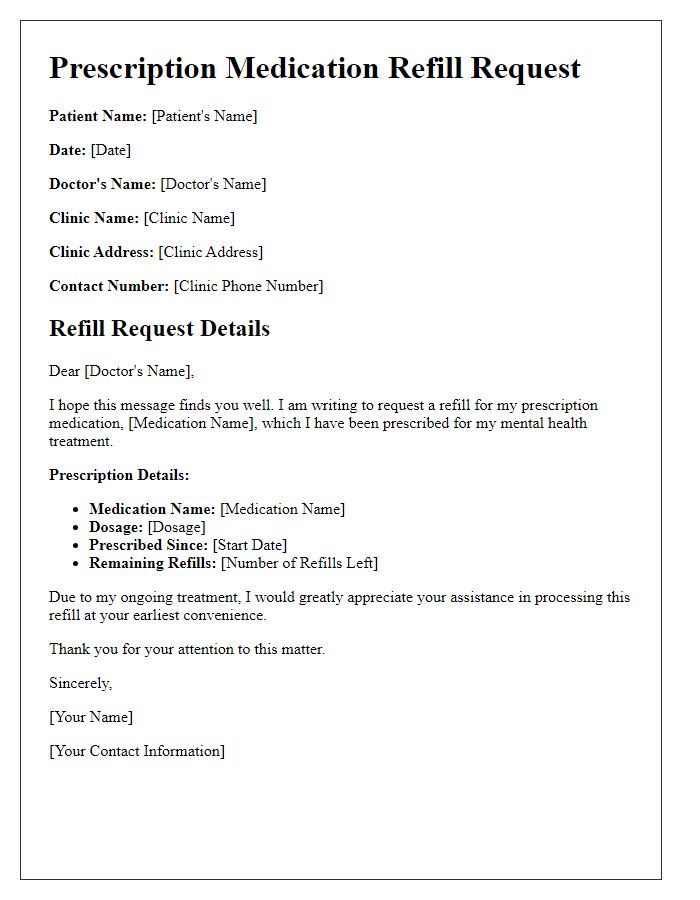
Letter template of prescription medication refill request for pain management.
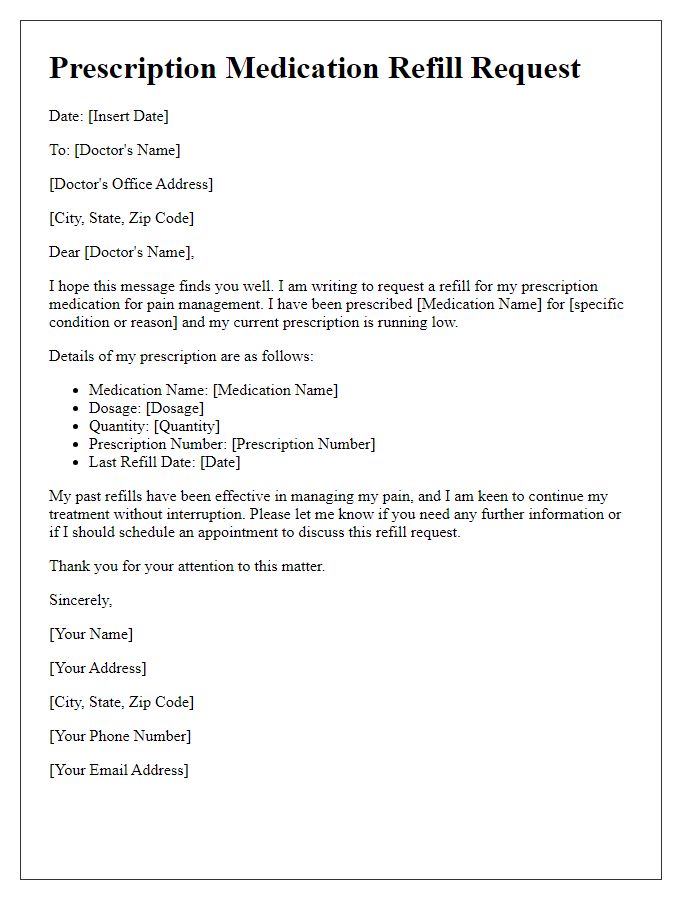
Letter template of prescription medication refill request for dermatological issues.
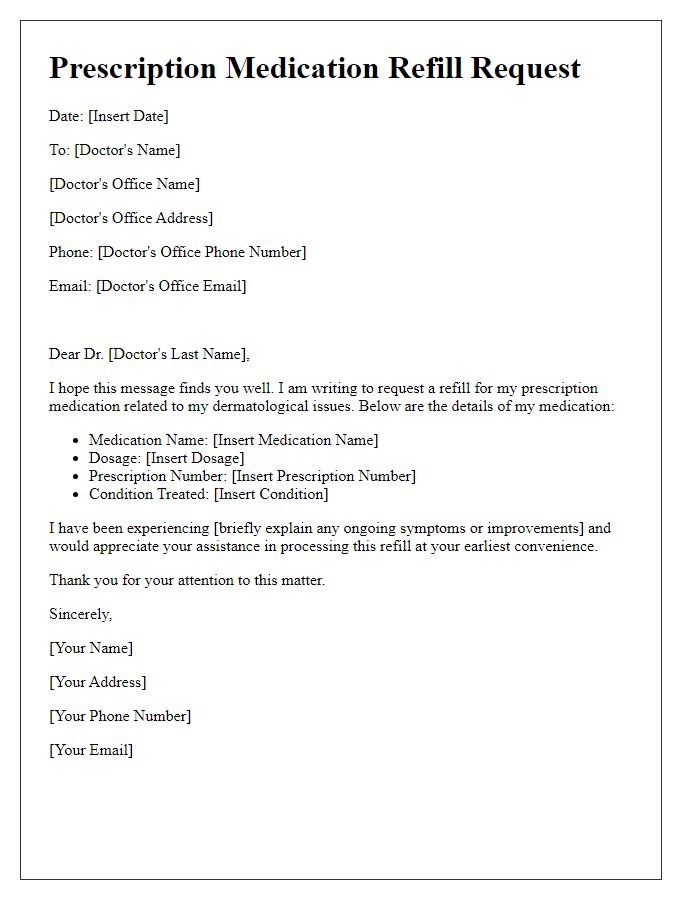
Letter template of prescription medication refill request for hormonal therapy.
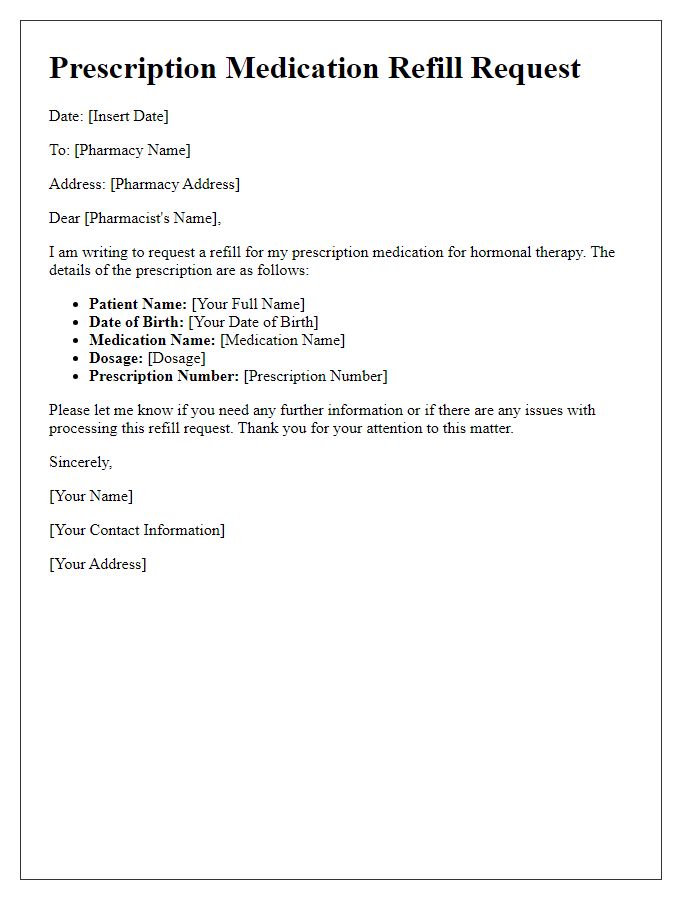
Letter template of prescription medication refill request for preventive care.
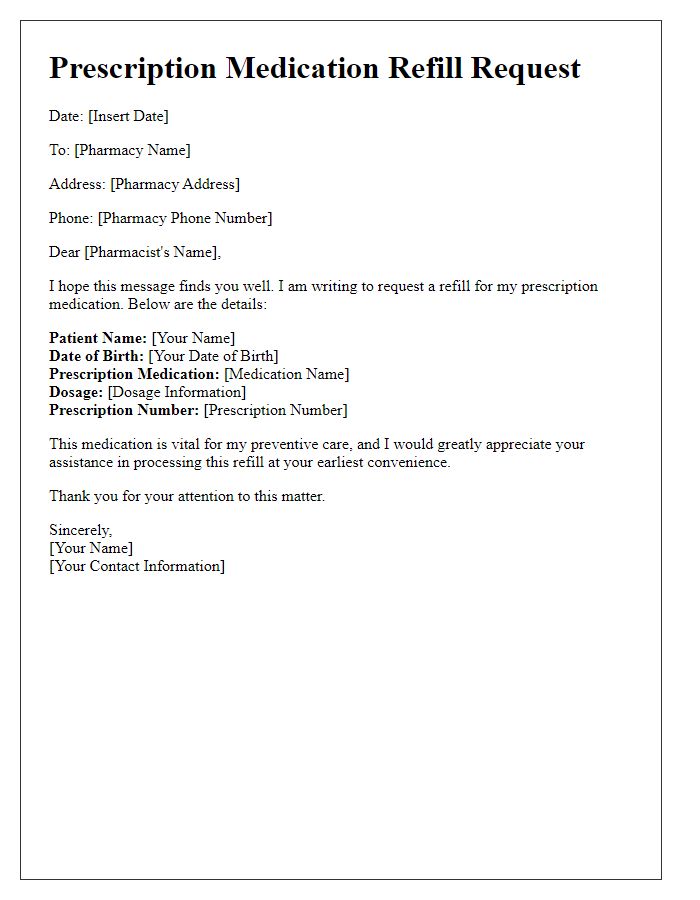

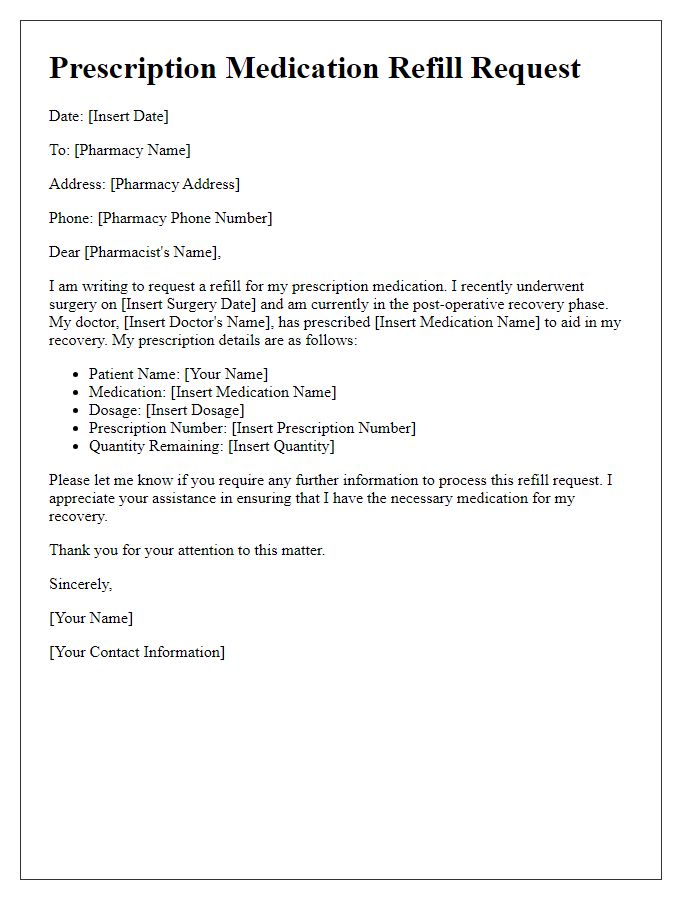

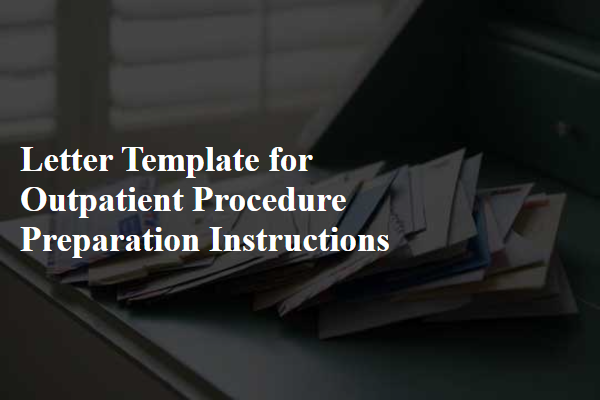
Comments